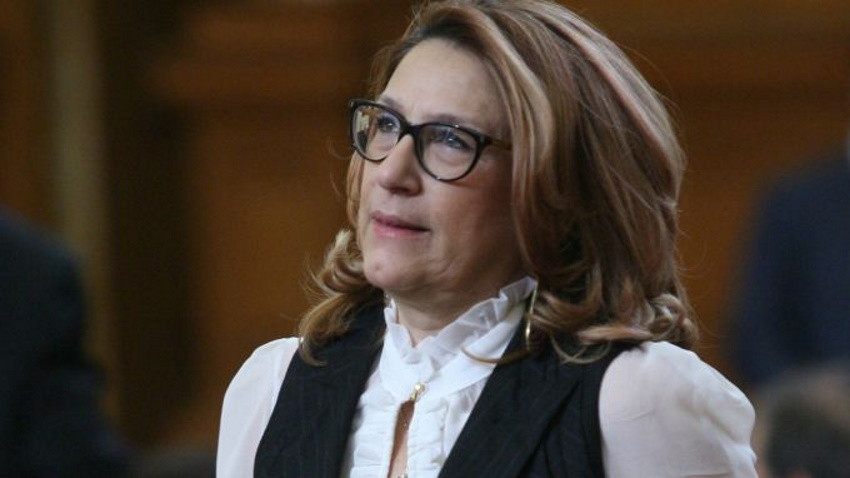After the US elections, the notions of many Bulgarians of what fair and just expression of the free will should look like seem to have collapsed. The very idea of someone getting 100% of the vote or of having a 100% voter turnout does evoke memories of Bulgaria’s recent socialist past. It is no coincidence that Bulgarians living in the United States have called on voters in Bulgaria to be vigilant about the forms of voting. In their address, they described the method of voting via regular mail as "a method in which results can change at the last minute and even a few days after the election". Bulgarians living in the USA have also expressed doubts about the mechanical voting and gave an example of how in 8 out of 9 US states with automatic sending of ballots, the winner is the same. It is these examples that call into question the credibility of the electoral system, without which "governments and institutions lose legitimacy in the eyes of citizens," Bulgarians in the United States concluded.
However, how could this example affect Bulgarian society, which has placed high hopes on machine voting as a guarantee against fraud and manipulation? This will definitely bring disillusionment to a large part of Bulgarian society, says political scientist Tatiana Burudjieva.

"The technology of elections cannot guarantee the quality of democracy," she says. "It cannot guarantee democratic values such as the informed choice of citizens. It depends only on them. When they do not have a sufficient level of critical thinking and are not interested in the political agendas of the parties, we cannot talk about such a choice. In the last 20 years it does not work. In the early 1990s people in Bulgaria were reading more and were interested in the platforms of political parties. Then there was more debate on essential matters in terms of policies and policy decisions."
Low voter turnout and voting based on subjective preferences for one political formation or another are among the main reasons for maintaining the status quo. And it will continue until we understand what matters most in determining the choice. According to Tatiana Burudjieva, it would be good, above all, to answer the main question: what are the people and parties to which we intend to delegate power to govern us? It is important when we listen to the statements of political figures to ask ourselves whether they will really do what they are talking about tomorrow.
Another question is to what extent the choice of voters corresponds to the number of ballots cast. There is a growing suspicion in the Bulgarian public that elections are being manipulated. That is why at the recent mass protests in Bulgaria, which continue in one form or another, those citizens dissatisfied with the governance of Prime Minister Boyko Borissov insist on the introduction of machine voting. The arguments are that this form provides serious guarantees against controlled voting and ill-intentioned election administration.
"This does not mean that the results cannot be influenced," says Tatiana Burudjieva. "They can be hacked, we are talking about a technique whose protection can be breached. In addition, in machine voting you do not have ballots that can be re-counted if you want to appeal the results. Now for example, we see what is happening in the United States, and the facts are that there are violations. If I have to offer something to the Bulgarians, it is to go and vote. There are no elections in which there is a high turnout, with real voters and to have the ballots falsified so as to change the result. It is only the mass participation in elections, coupled with common sense, that can lead to qualitative change. So let's be more rational and more active!"
Photos: chicagotribune.com and BGNES
Two graduates of the Bulgarian School "Saints Cyril and Methodius" in Jordan presented their achievements at an event at their school "Hadi al Muhammadi" in Amman. The photo, published on the Bulgarian school's Facebook page , shows third graders..
Radmila Sekerinska from North Macedonia appointed NATO Deputy Secretary General NATO Secretary General Mark Rutte has appointed Radmila Sekerinska from North Macedonia as the next NATO Deputy Secretary General. “I am happy to announce..
The traditional Bulgarian Christmas picnic, organized by the Bulgarian Cultural and Social Association "Rodina - Sydney" and the Bulgarian School "Dr. Petar Beron", will take place on December 8 , 2024 in St. Leonards Park in Sydney. "We have..
The traditional Bulgarian Christmas picnic, organized by the Bulgarian Cultural and Social Association "Rodina - Sydney" and the Bulgarian School..
Radmila Sekerinska from North Macedonia appointed NATO Deputy Secretary General NATO Secretary General Mark Rutte has appointed Radmila Sekerinska..
Two graduates of the Bulgarian School "Saints Cyril and Methodius" in Jordan presented their achievements at an event at their school "Hadi al Muhammadi"..

+359 2 9336 661
